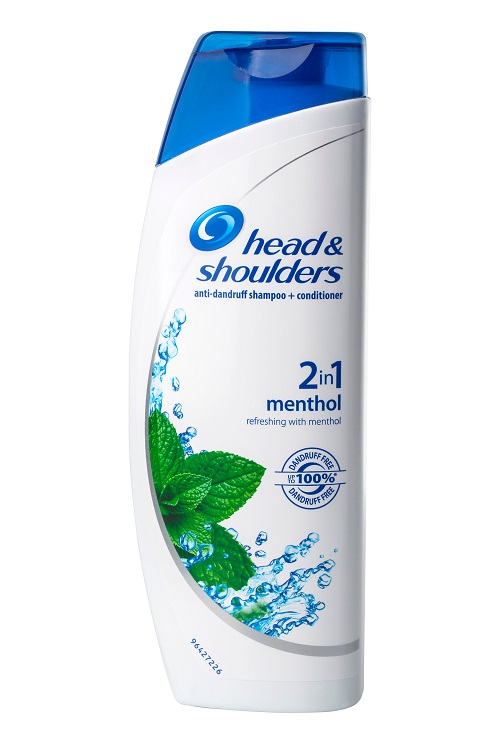Head and Shoulders is an anti-dandruff and non-dandruff American brand of shampoo produced by consumer goods corporation Proctor & Gamble. With the slogan, “The World’s No. 1 Shampoo,” when they first came out in the 1960s, Head and Shoulders continues its mission to rid the world of dandruff. With different types of active ingredients used, it is important to determine if whether Head and Shoulders is appropriate for vegan consumers.
Head and Shoulders products do not contain any ingredient that is blatantly animal-derived. There are some ingredients that can be considered gray areas, such as glycerol distearate, cetyl alcohol, and glycerin, but these are predominantly obtained from plant-based sources for industrial purposes. Aside from its ingredients, Head and Shoulders can be problematic due to the practice of animal testing. While they may not necessarily test their products on animals, they use ingredients that are not cruelty-free.
This article will ultimately discuss if whether Head and Shoulders is vegan, what the ingredients used are, and what other factors should be considered in the matter.
Table of Contents
Head and Shoulders Ingredients
According to their website(1), Head and Shoulders categorizes their ingredients into major groups. These major groups are water, cleansing and lathering agents, anti-dandruff active, hair conditioners, fragrances, pH adjustments, preservatives, and stabilizers.
Understandably, the specific ingredients can differ from one bottle to another since Head and Shoulders offers a multitude of different products. Currently, their website offers 95(2) different products. Examples of their products include Aloe Vera Anti-Dandruff Shampoo, Classic Clean Anti-Dandruff Shampoo, Deep Moisture Anti-Dandruff Shampoo, Green Apple Anti-Dandruff Conditioner, and Itchy Scalp Care Anti-Dandruff Shampoo, to name a few.

Head and Shoulders names common ingredients that consumers would be able to find on the bottles. For example, common cleansing and lathering agents would include sodium laureth sulfate, sodium lauryl sulfate, cocomidopropyl betaine, or cocamide MEA.
Moisturizers and conditioners used include silicones such as dimethiconol, dimethicone, bis-aminopropyl dimethicone/amodimethicon. Other ingredients include behentrimonium chloride, behentrimonium methosulfate, glycerin, and guar hydroxypropyltrimonium chloride.
Fragrances used include parfum, hexyl cinnamal, linalool, hydrozycitranellal, limonene, and propylene glycol. These substances ensure that Head and Shoulders products smell pleasing to the consumers.
Aside from smelling good, these products also have to be appropriate for the scalp’s natural pH. The pH adjustment ingredients used include sodium hydroxide, hydrochloric acid, sodium citrate, and citric acid.
These products have to last long and well, hence the use of stabilizers and preservatives. Common stabilizers and preservatives used include sodium chloride, sodium xylenesulfonate, glycol distearate, tetrasodium EDTA, sodium benzoate, benzyl salicylate, sodium salicylate, tea-dodecylbenzenesulfonate, and trideceth-10.
Lastly, the active ingredients found in Head and Shoulders are responsible for getting rid of and preventing dry scalp and dandruff. Common active ingredients used by Head and Shoulders include selenium sulfide, piroctone olamine, and zinc pyrithione. These ingredients primarily target the yeast-like fungus found on scalps that have been found to predominantly cause dandruff.
Is Head and Shoulders Vegan?
From the ingredients listed on their website, Head and Shoulders does not seem to contain any ingredient that is blatantly animal-derived. Most are either synthetic or derived from plants. However, there are a few ingredients that can be considered gray area ingredients because they can be extracted from both plants and animals. These gray area ingredients deter some vegans because of the uncertainty of whether they are truly vegan or not.
These gray area ingredients include glycerol distearate, cetyl alcohol, and glycerin. Although these ingredients can be extracted from animal sources, most of these substances are typically obtained from plant sources for industrial purposes. However, the uncertainty can still turn away some people.
Another factor that deters vegans away from companies using these gray area ingredients is the lack of declaration. When companies have vegan products, they would typically announce it since that becomes an additional selling point. Unfortunately, Head and Shoulders is only declaring that their products are phosphate-free, paraben-free, and paraffin-free. If their products were vegan, they’d probably say so.
Learn More: Is Herbal Essences Vegan?
Animal Testing
Another big issue that Head and Shoulders is facing is the practice of animal testing – using animals as test subjects for safety and other assessments. Technically, Head and Shoulders claims that they have not tested a single finished product on animals in over a decade. However, they refuse to make a claim because they say that almost all the ingredients they procure have been tested on animals to some extent.
“In fact, we have not tested a finished product on animals in over a decade, but we choose not to make this claim because we want to be straight with you. Nearly every ingredient used in consumer products today has been tested in the past and some laws require animal testing still today. That’s why we’re putting so much effort behind developing non-animal alternatives, and working with global authorities for their acceptance as the most meaningful solution to ultimately eliminate research involving animals.”
Head & Shoulders
Head and Shoulders also declares that they produce products in China. Unfortunately, Chinese regulatory authorities do animal testing at their own discretion without any involvement from the manufacturer.
“In China, regulatory authorities do animal tests at their own discretion without any involvement of the manufacturer. These tests are scientifically unnecessary. That’s why we have been closely collaborating with international experts and Chinese authorities on the acceptance of safety assessments using non-animal tests. As a result of all of these efforts, Chinese authorities recently announced the acceptance of non-animal alternative safety assessments for a broad variety of products. We will continue to work with authorities on the acceptance of non-animal alternatives, in China and globally.”
Head & Shoulders
This issue can be tricky for some vegans. Even if Head and Shoulders products were completely devoid of any animal product, some people would still not consider their products to be vegan if they were tested on animals. This differentiates the dietary vegans from the ethical vegans. Thus, it is difficult to truly say if Head and Shoulders products are truly vegan or not as that decision is left to the individual consumer and their specific beliefs.
References
1. https://headandshoulders.com/en-us/about/ingredients
2. https://headandshoulders.com/en-us/shop-products
4. Featured image credit ©lutsenko/123RF.COM



